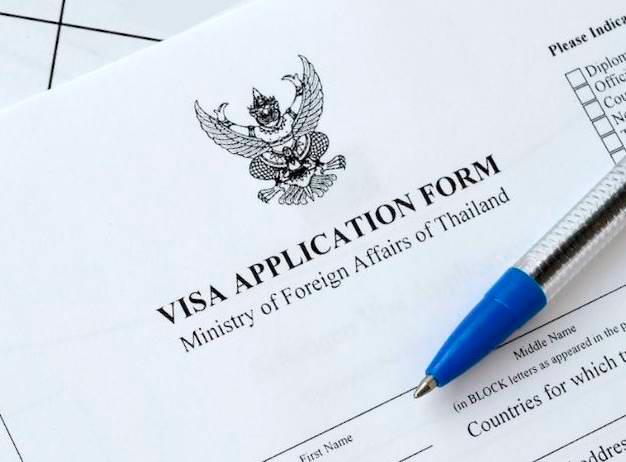The Thailand LTR Visa represents a major modernization of Thailand’s immigration system. Unlike traditional visa categories based on retirement, tourism, or temporary work, the LTR offers structured long-term residency for up to 10 years, targeting specific groups that contribute economically or professionally to Thailand.
Administered by the Thailand Board of Investment (BOI) in collaboration with the Immigration Bureau and other authorities, the LTR Visa is crafted to attract wealthy individuals, skilled professionals, and investors under a highly regulated but flexible framework.
This guide examines the LTR Visa’s legal underpinnings, eligibility classes, application pathway, resident privileges, and key compliance requirements.
1. Legal Foundation and Regulatory Authorities
1.1 Applicable Laws and Regulations
-
Immigration Act B.E. 2522 (1979) – Governs all immigration matters.
-
BOI Announcements and Royal Gazette Notifications (2022) – Define LTR-specific criteria and process.
-
Internal Ministerial Regulations – Detail endorsements, fees, and reporting requirements.
1.2 Key Agencies Involved
-
Board of Investment (BOI) — Initial screening and endorsement.
-
Thai Immigration Bureau — Visa issuance and monitoring compliance.
-
Revenue Department — Oversees taxation aspects, particularly for skilled professionals.
2. Structure of the LTR Visa
| Aspect | Details |
|---|---|
| Total Duration | 10 years (two 5-year periods) |
| Entry Rights | Unlimited multiple entries |
| Stay per Entry | Up to 5 years |
| Reporting | Annual (instead of 90-day reports) |
Unlike conventional visas, the LTR reduces the administrative burden significantly while still requiring yearly status confirmation.
3. Eligibility Categories: Who Can Apply
The LTR Visa covers four main applicant groups, each with clear financial and professional thresholds:
3.1 Wealthy Global Citizens
-
Annual personal income of at least USD 80,000 over two years.
-
Net assets exceeding USD 1 million.
-
Investment in Thai assets or bonds of at least USD 500,000.
3.2 Wealthy Pensioners
-
Minimum age: 50 years.
-
Pension or passive income of USD 80,000/year, or USD 40,000/year combined with investment.
3.3 Work-from-Thailand Professionals
-
Employed by a foreign company.
-
Annual income above USD 80,000.
-
Employer must have substantial global revenues.
3.4 Highly Skilled Professionals
-
Salary of at least USD 80,000/year, with some exemptions.
-
Expertise in sectors like technology, biotech, healthcare, and infrastructure.
-
Minimum 5 years’ professional experience (unless holding a Ph.D.).
3.5 Dependents
-
Spouse and up to four children under 20 years of age can accompany the principal applicant.
4. The LTR Visa Application Process
Step 1: Application Submission
-
Online application via the BOI’s LTR Visa system.
-
Documentation required:
-
Proof of income/assets.
-
Employment contracts or business documentation.
-
Health insurance policy meeting Thai standards.
-
Step 2: BOI Review
-
Applications are screened for eligibility and documentation accuracy.
-
Processing times generally range between 20–45 working days.
Step 3: Visa Collection
-
After approval, applicants can collect their visas:
-
Abroad, through a Thai embassy or consulate, or
-
Inside Thailand, via the Immigration Bureau.
-
-
Visa issuance fee: THB 50,000 per applicant.
Step 4: Digital Work Permit Application (if needed)
-
Separate but simplified application process for LTR holders intending to work.
5. Key Privileges for LTR Visa Holders
| Privilege | Benefit |
|---|---|
| Airport Fast-Track Services | Special immigration lanes at major airports. |
| Long-Term Work Rights | Through a streamlined Digital Work Permit system. |
| Tax Concessions | Flat 17% income tax for qualifying professionals. |
| Family Inclusion | Spouses and children enjoy the same visa validity. |
| Relaxed Property Rules | Easier condominium purchases under foreign ownership laws. |
6. Ongoing Compliance and Reporting Duties
LTR visa holders must adhere to specific conditions to maintain their status:
-
Annual residence reports submitted to Immigration.
-
Valid health insurance (minimum USD 50,000) maintained at all times.
-
Notification to authorities of changes in:
-
Employer (for working LTR holders).
-
Investment status (for investor LTR holders).
-
Family status (marriage, divorce, births).
-
Failure to maintain these conditions can lead to visa cancellation and possible difficulties with future Thai immigration applications.
7. Practical Difficulties and Realities
7.1 Documentation Precision
-
Proof of income, employment, and assets must meet Thai administrative standards.
-
Non-Thai documents must be translated and legalized.
7.2 Misconceptions About Permanent Residency
-
Holding an LTR Visa does not automatically qualify for Permanent Residency (PR).
-
Separate PR applications and qualifications apply.
7.3 Provincial Implementation Differences
-
Variations exist in Digital Work Permit processing across immigration offices, especially outside Bangkok.
8. Final Thoughts
Thailand’s Long-Term Resident Visa reflects a clear intention to restructure its foreign resident demographics, focusing on those who offer economic, intellectual, and societal value.
While offering major advantages such as work authorization, reduced tax burdens, and long-term immigration stability, the LTR Visa is targeted narrowly. Applicants must carefully prepare their evidence, understand their long-term compliance obligations, and manage administrative interaction with Thai authorities in a proactive way.
For those who qualify, the LTR Visa presents a unique and strategic pathway to integrate more deeply into Thai society and economy.

